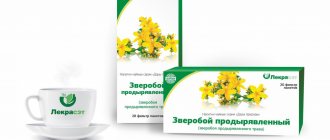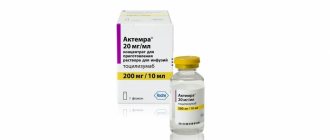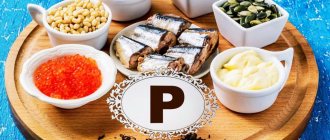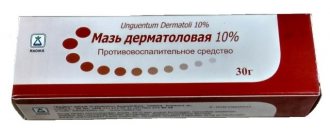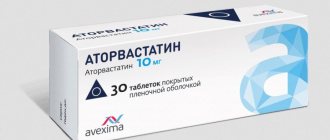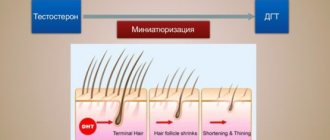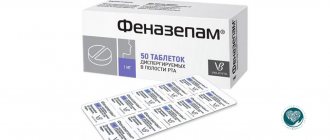≡ Home → Valerian → About valerian →
Valerian is a drug with fairly low toxicity and, therefore, the risk of side effects from its use is minimal. And yet, both valerian and drugs based on it, like almost any pharmaceuticals, have a number of undesirable effects on the human body.
Such drugs are more likely to be dietary supplements than drugs, which does not exclude the possibility of developing side effects after taking them
It is also important to remember that in certain conditions and in the presence of certain diseases, the use of valerian is strictly contraindicated.
The occurrence of certain side effects (from heartburn to loss of consciousness) will depend on a number of factors: the form of release of the drug, the dose taken, the initial state of the body of the person taking valerian. In addition, treating valerian as a natural and safe remedy is often accompanied by an overdose, and this is fraught with quite serious consequences for the patient.
So, why is valerian dangerous for humans, and what are the contraindications and side effects of this drug?
pharmachologic effect
The drug is of plant origin. Wikipedia indicates that valerian officinalis is a herbaceous, perennial plant.
Its other name is cat grass , since it is well known how valerian affects cats. Cat grass, as valerian is sometimes called differently, causes a pronounced arousal reaction in felines.
The characteristics of the plant can be seen in the photo of valerian officinalis.
Valerian extract has a moderate sedative effect on the body. This effect is noted due to the presence in its composition of essential oil, the main content of which is an ester of isovaleric acid and borneol.
valerine and hotenin also have a sedative effect . As a result, a slow but stable sedative effect is observed.
Under the influence of the drug, inhibition processes in the cerebral cortex are enhanced. The synthesis and secretion of GABA at the synapses of cortical neurons also increases. This effect occurs only in the case of the total effect of substances that are part of valerian.
The extract helps facilitate the onset of natural sleep. Valeric acid and valepotriates have a weak antispasmodic effect. Also, the active substances of valerian provide a choleretic effect, activates the secretory activity of the gastrointestinal mucosa, slows the heart rate and dilates the coronary vessels.
The therapeutic effect is observed if treatment is carried out systematically and over a long period of time.
Valerian extract, due to the presence of actinidin , has an unusual effect on felines.
Answering the question why cats love valerian, experts note that the smell of actinidin is reminiscent of the smell of certain substances contained in the urine of cats.
Relieves muscle spasms
The Italian botanist, one of the first members of the Italian Academy of Sciences, Fabio Colonna, reported back in 1592 that the use of powdered valerian root allowed him to completely get rid of epilepsy [9]. This disease manifests itself as convulsions - short-term, frequent muscle spasms that do not depend on a person’s will.
In 2004, an Australian scientist from the University of Queensland and the Royal Brisbane Hospital, MJ Eadie, set out to evaluate the available evidence that valerian has an anticonvulsant effect. It was found that isovaleric acid contained in the plant acts similarly to valproic acid, a substance used to eliminate seizures in epilepsy [10]. It can also prevent sudden and involuntary muscle contractions. However, it acts more gently and safely. In addition, valepotriates exhibit an antispasmodic effect.
It may seem counterintuitive, but valproic acid was created in the late 19th century as an analogue of valeric acid, also present in valerian. Only the purpose of its production at that time was not the treatment of epilepsy, but the dissolution of organic compounds. The anticonvulsant properties of the substance were discovered completely by accident 80 (!) years later. Since then, it has been the most popular antiepileptic drug throughout the world. However, its safety leaves much to be desired. It has been proven that valproic acid can cause such severe disorders as liver failure, fatal toxic hepatitis, acute pancreatitis, dementia with brain atrophy, dysfunction of endocrine and reproductive organs and other pathologies (M. Z. Karkashadze, V. M. Studenikin, O. I. Maslova and others, Scientific Center for Children’s Health, Russian Academy of Medical Sciences) [11].
In 1980, Holm and colleagues demonstrated in experiments with cats that valerian can reduce muscle tone in animals by 30-40% [12].
In 2010, a group of specialists from Rafsanjan University of Medical Sciences (Iran) led by ME Rezvani experimentally (on rats) also confirmed the antispasmodic effect of valerian [13]. It extends not only to skeletal (striated) muscles, but also to the smooth muscles of hollow internal organs (stomach, intestines, uterus, heart, gall and bladder) and the walls of lymphatic and blood vessels.
Indications for use
The use of valerian tablets is indicated in the following cases:
- high degree of nervous excitement;
- insomnia and problems falling asleep;
- migraine;
- vegetative-vascular dystonia;
- functional disorders of the cardiovascular system (as part of complex treatment);
- spasms of the gastrointestinal tract (as part of complex treatment).
Before taking valerian tablets for blood pressure or stress (before an exam, etc.), you must consult a doctor who will tell you how to take the tablets, how much to drink, and whether you should do it.
How does valerian affect blood pressure?
It is recommended to familiarize yourself with the effect of valerian on blood pressure. This will help determine whether Valerian raises or lowers blood pressure when you use it.
During use, the essential oils and alkaloids that are part of the drug affect the blood vessels and nervous system. If the increase in blood pressure was caused by excessive nerve stimulation, the blood pressure will return to normal after taking the drug.
Normalization of blood pressure gradually occurs because valerian medications have a cumulative effect that lasts only 12-3 months. This is why this medicine is not suitable for immediately stabilizing blood pressure.
Contraindications
Before you start taking this remedy, you should know its medicinal properties and contraindications. You should not take the drug if you have the following conditions and diseases:
- high sensitivity to the components of the drug;
- fructose intolerance;
- lactase deficiency;
- sucrase/isomaltase deficiency;
- glucose-galactose malabsorption;
- first trimester of pregnancy ;
- age up to 3 years.
Pregnant women should take into account the beneficial properties and contraindications and consult a doctor.
Side effects
During treatment, the following side effects of the tablets may occur:
- lethargy;
- drowsiness and decreased performance;
- muscle weakness;
- constipation (if long-term use is practiced).
Sometimes side effects may develop in the form of allergic reactions .
Valerian extract, instructions for use of tablets (Method and dosage)
The instructions for valerian tablets include taking 1-2 tablets three times a day immediately after meals. If necessary, the dose can be increased, but only under the supervision of a specialist. Treatment should last from 2 to 4 weeks.
The instructions for using valerian tablets provide for repeated courses of therapy if necessary. The dose should not be adjusted for people who have impaired liver or kidney function.
How to take other types of medicine (Bulgarian valerian, brown valerian, etc.) should be checked with the doctor who prescribes the treatment.
The doctor prescribing the treatment regimen should tell you how to take valerian tablets for a certain disease.
Bibliography
- Kemper KJ Valerian (Valeriana officinalis) // Longwood Herbal Task Force. – 1999. – 25 p.
- Bhattacharyya D., Sur TK, Jana U., Debnath PK Controlled programmed trial of Ocimum sanctum leaf on generalized anxiety disorders // Nepal Medical College Journal. 2008. Vol. 10 (3). P. 176–179.
- Malva JO, Santos S., Macedo T. Neuroprotective properties of Valeriana officinalis extracts // Neurotoxicity Research. 2004. Vol. 6 (2). P. 131–140.
- De Oliveria DM, Barreto G., De Andrade DV, Saraceno E., Aon-Bertolino L., Capani F., Dos Santos E. l. Bachá R., Giraldez LD Cytoprotective effect of Valeriana officinalis extract on an in vitro experimental model of Parkinson disease // Neurochemical Research. 2009. Vol. 34(2). P. 215–220.
- Diaper A., Hindmarch I. A double-blind, placebo-controlled investigation of the effects of two doses of a valerian preparation on the sleep, cognitive and psychomotor function of sleepdisturbed older adults // Phytotherapy Research. 2004. Vol. 18. P. 831–836.
- Bent S., Padula A., Moore D., Patterson M., Mehling W. Valerian for sleep: a systematic review and meta-analysis // American Journal of Medicine. 2006. Vol. 119(12). P. 1005–1012.
- Tokunaga S., Takeda Y., Niimoto T., Nishida N., Kubo T., Ohno T., Matsuura Y., Kawahara Y., Shinomiya K., Kamei C. Effect of valerian extract preparation (BIM) on the sleep -wake cycle in rats // Biological & Pharmaceutical Bulletin. 2007. Vol. 30(2). P. 363–366.
- Ziegler G., Ploch M., Miettinen-Baumann A., Collet W. Efficacy and tolerability of valerian extract LI 156 compared with oxazepam in the treatment of non-organic insomnia a randomized, double-blind, comparative clinical study // European journal of medical research. 2002. Vol. 7 (11). P. 480–486.
- Colonna F. Phytobasanos. – Neapoli: Iacobum Carlinum & Antonium Pacem, 1592. – 32 pp.
- Eadie MJ Could valerian have been the first anticonvulsant? // Epilepsy. 2004. Vol. 45. P. 1338–1343.
- Karkashadze M. Z., Studenikin V. M., Maslova O. I., Bakanov M. I., Shelkovsky V. I., Balkanskaya S. V. Ideas about the side effects of valproic acid drugs in the treatment of epilepsy in children // Questions modern pediatrics. 2003. T. 2. No. 3. P. 43–49.
- Holm E., Kowollik H., Reinecke A., Henning von GE, Behne F., Scherer H.-D. Vergleichende neurophysiologische Untersuchungen mit Valtratum / Isovaltratum und Extractum Valerianae an Katzen // Die Medizinische Welt. 1980. Vol. 31, No. 26. P. 982–990.
- Rezvani M.E., Roohbakhsh A., Allahtavakoli M., Shamsizadeh A. Anticonvulsant effect of aqueous extract of Valeriana officinalis in amygdala-kindled rats: possible involvement of adenosine // Journal of Ethnopharmacology. 2010. Vol. 127(2). P. 313–318.
- Yuan CS, Mehendale S., Xiao Y., Aung HH, Xie J.-T., Ang-Lee MK The gamma-aminobutyric acidergic effects of valerian and valerenic acid on rat brainstem neuronal activity // Anesthesia & Analgesia. 2004. Vol. 98. P. 353–358.
- Malankina E. L. Use of valerian in official and folk medicine. URL: https://www.greeninfo.ru/grassy/valeriana_officinalis.html/Article/_/aID/5396 (access date: May 16, 2019).
- Andreatini R., Sartori VA Seabra MLV, Leite JR Effect of valepotriates (valerian extract) in generalized anxiety disorder: a randomized placebo-controlled pilot study // Phytotherapy Research. 2002. Vol. 16. P. 650–654.
- Kivimäki M., Nyberg ST, Batty GD, Fransson E., Heikkiä K., Alfredsson L., Bjorner JB, Borritz M., Burr H., Casini A., Clays E., De Bacquer D. et al. Job strain as a risk factor for coronary heart disease: a collaborative meta-analysis of individual participant data // The Lancet. 2012. 380 (9852). P. 1491–1497.
- Buckley T., Hoo SY, Fethney J., Shaw E., Hanson PS, Tofler GH Triggering of acute coronary occlusion by episodes of anger // European Heart Journal: Acute Cardiovascular Care. 2015. Vol. 4 (6). P. 493–498.
- Karomatov I. D., Rakhmatova D. I. Valerian officinalis and prospects for use in neurological and general medical practice: literature review // Biology and integrative medicine. 2016. No. 1. pp. 91–108.
- Sokolov S. Ya., Zamotaev I. P. Handbook of medicinal plants - M.: Medicine, 1987. - 512 p.
- Duan X.-Y., Gong Z.-F., Chen S.-H., Fang Y., Liu Y.-W. HPLC fingerprint of the antiarrhythmic fraction of Valeriana officinalis // Zhongyaocai. 2009. Vol. 32. P. 866–870.
- Cropley M., Cave Z., Ellis J., Middleton RW Effect of kava and valerian on human physiological and psychological responses to mental stress assessed under laboratory conditions // Phytotherapy Research. 2002. Vol. 16. P. 23–27.
- Skakun N. P., Pasechnik N. X. On the choleretic effect of drugs of valerian officinalis and Leuzea safflower // Proceedings of the Ternopil Medical Institute. 1960. T. 1. pp. 264–266.
- Simanenkov V. I., Lutaenko E. A. Methodological recommendations for the use of ursodeoxycholic acid (Urdox) in patients with biliary dyskinesia. – St. Petersburg. : Pharmproekt, 2010. – 28 p.
- Skryabin K.I., Shultz R.S. Fundamentals of general helminthology. – M.: Selkhozgiz, 1940. – 470 p.
- Charushin V.A. A short guide to helminthology: a textbook for doctors and students of medical and veterinary universities. – M.: Medgiz, 1931. – 360 p.
- Yordanov D., Nikolov P., Boychinov A. Herbal medicine. Treatment with medicinal herbs. – Sofia: Medicine and Physical Education, 1972 – 347 p.
- Zavrazhnov V.I., Kitaeva R.I., Khmelev K.F. Medicinal plants of the Central Black Earth Region. – Voronezh: VSU Publishing House, 1972. – 390 p.
Overdose of Valerian
The consequences of an overdose of valerian tablets are the manifestation of drowsiness , muscle weakness , lethargy and other signs of depression of the central nervous system.
bradycardia and arrhythmia may occur . As a rule, such symptoms appear when taking large doses of the medicine (doses 20 times or more higher than usual).
However, how many tablets cause such phenomena is individual for each person. The instructions do not indicate a lethal dose of the drug. Whether you can die after a severe overdose depends on the person’s health.
In case of overdose, the drug should be immediately discontinued, gastrointestinal lavage should be performed, the patient should be given activated carbon , as well as Magnesium sulfate to prevent intestinal absorption of substances and cause a laxative effect. There is no specific antidote.
Has bile-forming and choleretic properties
Valerian officinalis combines choleretic and cholespasmolytic properties (Skakun N.P., Pasechnik N.Kh. “On the choleretic effect of preparations of valerian officinalis and Leuzea safflower,” 1960) [23]. Simply put, the plant increases the secretion of bile and promotes its outflow into the duodenum.
The bile-forming effect is achieved by increasing the proportion of water in the composition of bile and reducing the viscosity of the latter. Absorbed in the gastrointestinal tract, valerian mineral salts are secreted by liver cells into primary bile, creating increased osmotic movement in the bile capillaries of the liver, and contribute to an increase in the water component of bile. In addition, herbal components reduce the reabsorption of water and electrolytes in the gallbladder and biliary tract, which also significantly reduces the viscosity of bile. As a result, bile excretion is facilitated and the formation of stones in the gall bladder is prevented (D.M.S., Professor V.I. Simanenkov, Ph.D. E.A. Lutaenko) [24].
The cholespasmolytic effect of valerian is to relax the tone of the bile ducts, eliminate spasms, improve the outflow of bile, and relieve pain (see above for the antispasmodic effect of valerian on smooth muscles).
special instructions
You should clearly read the instructions before taking the product in order to compare the benefits and harms of taking the product in each specific case.
If the tablets are used over a long period of time, the effect on a person may lead to a decrease in psychomotor reactions. How long it takes for the drug to act in this way depends on the individual characteristics of the body.
When taking the medicine, you should take into account how valerian acts on a person, so you need to carefully drive vehicles, as well as perform other actions that require accurate reactions.
Another name for the plant is cat grass, as it is called because valerian causes a specific effect on animals. Many people are interested in whether valerian is harmful for cats.
You can find out why cats like this medicine by studying its composition. actinidin in its composition .
As a rule, cats behave in a special way after valerian. But, answering the question whether it is possible to give a dog or whether it is possible to give a cat valerian, it should be noted that sometimes veterinarians even prescribe this drug to cats in small doses in order to increase vitality.
Unlike people, cats are not sedated by this remedy. There have been cases where an overdose led to the death of an animal. Sometimes the lethal dose for a cat is a relatively small amount of the drug, so it is advisable not to keep the tablets in places where animals have access.
If valerian is given in tablets to dogs, the product can provoke allergic reactions in the animal.
At low pressure
Many people wonder whether valerian can be used for low blood pressure.
Experts do not recommend taking the drug to people with hypotension, as this will only worsen the situation. Medicines with a sedative effect accelerate the process of lowering blood pressure and constrict blood vessels, which in turn leads to increased drowsiness and general weakness of the body. Therefore, patients suffering from hypotension are recommended to take tonic drugs instead of valerian. Such remedies include preparations of eleutherococcus, lemon grass or ginseng. They can help with hypotension and normalize blood pressure.
If a person with low blood pressure regularly takes high doses of valerian, their health will worsen and they will have to call an ambulance.
Analogs
Level 4 ATC code matches:
Alora
Motherwort extract
Novo-Passit
Cardiovalen
Liked
Carmolis
Valerian tincture
Lotusonic
Relaxil
Persen Forte
Persen
Phytosed
Sedavit
Motherwort Forte Evalar
Dormiplant
Sondox
Sedafiton
Peony tincture
Menovalen
Bromcamphor
Pharmacies sell a wide variety of valerian-based medications. In particular, these are: Valerian P , Himalayan valerian , Bulgarian valerian , etc. There are also a number of drugs with similar indications.
Which is better: Valerian or Motherwort?
When answering the question of which is better - valerian or motherwort, it should be taken into account that the effect of motherwort on the human body is almost the same. However, in the treatment of neuroses and cardiovascular diseases, a more pronounced effect is observed when taking motherwort.
Those who are interested in whether this remedy increases or decreases blood pressure should take into account that when taking motherwort, blood pressure levels decrease.
With high blood pressure
It's no secret that valerian significantly reduces blood pressure, which is why it is often used for hypertension. The positive effect of its use is achieved thanks to its biological components. They have relaxing properties that help keep blood vessels open during high blood pressure and reduce the likelihood of a stroke or heart attack. Therefore, you should not wonder whether valerian lowers blood pressure or not.
For high blood pressure, experts advise using valerian tea rather than pills. The peculiarity of this remedy is the speed of its action. You can reduce your blood pressure to normal levels almost immediately after drinking fluids. When reducing blood pressure, you can combine tea with valerian tincture to increase effectiveness. This comprehensive treatment will not only help you cope with the symptoms of hypertension, but also improve the functioning of your digestive system.
Valerian extract during pregnancy and lactation
Whether pregnant women can take valerian preparations depends on the period of future pregnancy. Valerian tablets are prohibited during pregnancy if the 1st trimester has passed. For pregnant women in later stages (2nd trimester, 3rd trimester), the drug is approved according to strict indications.
As a rule, valerian during pregnancy is prescribed as a relatively safe sedative, since sudden changes in hormonal levels provoke a state of emotional instability in the expectant mother. During pregnancy, valerian can effectively relieve tension.
However, it should be noted that valerian tablets during pregnancy should be taken strictly in the dosage prescribed by the doctor, since an overdose can negatively affect the developing fetus. The question of whether valerian can be taken by pregnant women should initially be discussed individually with a gynecologist.
Valerian can be used during breastfeeding only after the doctor has approved the use of this drug. It should be borne in mind that during breastfeeding, medications pass into breast milk, so the prescribed dosage must be strictly observed.
It is also important to know that when breastfeeding, a woman or baby may experience allergic reactions as a result of taking the drug, and sleep disturbances may occur in the baby. Therefore, when breastfeeding, you can practice taking the extract only according to indications and after prescription.
Gets rid of helminths
Experts say that more than 90% of people around the world are infected with one or another parasite. Helminths interfere with the normal functioning of internal organs and provoke the development of a large number of concomitant diseases. It is impossible to get rid of them in a short time, and long-term use of synthetic anthelmintic drugs is dangerous for human health, since such drugs, according to Academician K. I. Scriabin, “are poisons not only for the parasite, but also for its owner” [25]. Another scientist, Professor V.A. Charushin, reported at the beginning of the last century: “After the use of anthelmintic drugs, complications may exceed the consequences of the parasitic infection itself.” The professor recommended giving preference to herbal remedies in the fight against helminthic infestations [26].
One of these remedies is valerian officinalis. The antihelminthic properties of the plant were described in the works of the Bulgarian herbalist P. Nikolov back in the middle of the last century (1949) [27]. Later (1972), V.I. Zavrazhnov, R.I. Kitaeva and K.F. Khmelev reported that valerian rhizomes are effective as an anthelmintic for tapeworm infestation [28].
The main active ingredients that provide the anthelmintic properties of the plant are strong phytochemical compounds with a bitter taste - iridoids. Valerian contains two types of them - valepotriates and alkaloids. All of them are carefully preserved in the Valerian P preparation thanks to the use of cryoprocessing technology.
Reviews
Reviews of valerian tablets, as a rule, indicate that users consider this drug relatively “safe” and very often take it independently, without prescription. As a rule, valerian extract in tablets has a beneficial effect, helping to overcome insomnia, irritability, and survive stressful situations.
Often patients do not know how many tablets to take and exceed the usual dosage. At the same time, drowsiness and lethargy are noted. Whether valerian extract helps calm people often depends on the person's circumstances and condition.
Doctors in the reviews note that before taking it, it is still advisable to consult a doctor, who needs to ask questions about why valerian extract is prescribed, whether a nursing mother can drink this medicine, how much to drink to calm down, why valerian works this way, etc.
Valerian P tablets 205 mg No. 200
Compound
Valerian officinalis (cryopowder) – 56 mg, vitamin C – 6 mg, lactose. Chemical composition of the roots and rhizomes of valerian officinalis: Essential oils (up to 3.5%). Isovaleric acid. Valerian-borneol esters. Organic acids (acetic, malic, formic and others). Tannins and resins, alcohols, alkaloids, starch, ketones, terpenes, sugars, glycosides.
Pharmacokinetics
Indications for use
For disorders of the central nervous system: nervous overexcitation, neuroses, hysteria, increased irritability, insomnia and many others. For tachycardia, hypertension. For convulsions, spasms and epileptic seizures. For headaches, menstrual and other types of pain. For chronic coronary circulatory disorders. For neurodermatitis. For climacteric disorders. For gastrointestinal cramps, constipation, flatulence. For diseases of the liver and biliary tract. To prevent obesity, as it eliminates the feeling of hunger. For diseases of the thyroid gland. As an anthelmintic.
Contraindications
Individual intolerance to components. It is recommended to consult a doctor before use.
Directions for use and doses
2-3 tablets 3 times a day. Duration of treatment: 2 weeks. Programs for taking the drug "Valerian P": Program "Heart and Vascular Health" During meals "Dihydroquercetin Plus" / "Apitonus P" according to the scheme: 1 table. 3 times a day. For sleep disorders, “Valerian P” / “Motherwort P” / “Nervo-Vit” / “Evening” in 15 minutes. before sleep. To improve blood microcirculation and reduce oxygen starvation, “Memo-Vit” + “Cardioton”. Together, 2 tables. each of them 3 times a day, during meals. Program “Strong nerves, healthy sleep” “Valerian P” 2-3 tables. 3 times a day with meals. Course admission – 14 days. "Nervo-Vit" 2-3 tablets 3 times a day with meals. Course admission – 14 days.
Storage conditions
Store in a dry place at room temperature.
Best before date
3 years.
special instructions
It is recommended to consult a doctor before use. Dietary supplement NOT A MEDICINE.
Valerian should not be overused, as its use for a long time can cause dysfunction of the gastrointestinal tract. Therefore, it is best to use valerian preparations in conjunction with Elecampane-P, which also has a sedative effect, but, unlike valerian, normalizes the functioning of the gastrointestinal tract.
Description
SEDATING AND hypnotics of plant origin. Calms, relieves nervous tension and agitation, relieves fear and anxiety; helps to fall asleep, makes sleep deep and long; relieves attacks of headaches associated with nervous experiences; relaxes, relieves spasms and muscle tension; protects the heart and blood vessels from the effects of stress, reduces blood pressure; improves the movement and digestion of food through the gastrointestinal tract; promotes the production of digestive enzymes and the removal of stagnant bile; exhibits choleretic properties. Valerian officinalis is a perennial herbaceous plant reaching a height of 1.5-2 meters. It has a unique aroma and bitter-spicy taste. Valerian is native to the Mediterranean. Distributed throughout the European territory of our country. Its unique healing properties have been known since Antiquity. In Russia, large-scale procurement of medicinal raw materials of valerian began during the reign of Peter I. It is widely used in modern medicine and pharmaceuticals. Advantages of the drug "Valerian P": - to achieve a sleeping effect, it is enough to place an open jar of "Valerian P" at the head of the bed. The strong aroma of valerian indicates the high quality of the raw materials. In the British and Portuguese pharmacopoeias, it is the smell of the plant that is considered a sign of a quality drug; — all biologically active substances and medicinal effects of the plant are preserved thanks to the use of cryogenic technology (instant deep freezing), which cannot be said about extracts, infusions and decoctions, in which some of the plant substances disappear due to thermal / chemical treatment; - longer lasting effect due to longer digestion of the drug made using cryotreatment; — thanks to the content of the antioxidant vitamin C, “Valerian P”, unlike its competitors, not only soothes, but also restores the body from the effects of stress. During stress, free radicals are formed, which trigger the aging process and even cancer, and vitamin C prevents free radical damage; — the dosage of components in “Valerian P” is calculated in such a way that anyone can individually choose the best dosage option to obtain a calming effect and relieve stress
Conditions for dispensing from pharmacies
Available without a prescription
Dosage form
pills
Manufacturer and organization accepting consumer complaints
PARAFARM, LLC
Action
It is a strong sedative. By slowing down the transmission of nerve impulses, it reduces the excitability of the nervous system. Relaxes muscles, reducing cramps. Eliminates spasms. Dilates coronary vessels, thereby stabilizing blood pressure and heart rate. By expanding the walls of blood vessels, it increases the oxygen saturation of tissues. Regulates the activity of the gastrointestinal tract. Is a natural laxative. It has choleretic, antimicrobial and anthelmintic properties. Valerian roots and rhizomes are a source of valeric and isovaleric acids, valepotriates and other bioactive compounds (more than 120), containing up to 3.5% essential oil. For all treatment methods, except cryoprocessing, many of them (valerenal, valepotriate, valerin, bornyl isovalerate, etc.) are technologically inaccessible. A long-term calming effect is achieved due to the fact that the valerian root in the “Secrets of Longevity” series is not subjected to chemical or heat treatment, which makes the process of digesting the root longer compared to tinctures and extracts. The substances and even the smell of valerian have a powerful sedative and hypnotic effect. The plant also has an antispasmodic effect and improves myocardial function in case of cardioneurosis. Vitamin C is a powerful antioxidant that reduces the effects of free radicals and improves immunity. Vitamin C prevents cell damage from free radicals and thereby protects against aging and cancer.
Price, where to buy
How much this drug costs depends on the number of tablets in the package.
The price of valerian tablets is from 70 rubles for 50 pcs.
- Online pharmacies in RussiaRussia
- Online pharmacies in UkraineUkraine
- Online pharmacies in KazakhstanKazakhstan
ZdravCity
- Valerian extract Renewal tab.
p/o captivity. 0.02g 28pcs ZAO PFK Renewal 65 RUR order - Valerian extract Renewal tab. p/o captivity. 0.02g 56pcs JSC PFK Renewal
98 RUR order
- Valerian extract tablets p.p.o. 20 mg 50 pcs. PAO Biosintez
40 rub. order
- Valerian extract + B6 tab. p/o captivity. Kvadrat-S 0.02g 50pcs Kvadrat-S LLC
68 RUR order
show more
Pharmacy24
- Valerian extract 20 mg N10 tablets PAT "Lubnipharm", Ukraine
2 UAH. order - Valerian extract 20 mg N50 tablets PAT "Galichfarm", Ukraine
14 UAH order
- Valerian extract 0.02 g No. 50 tablets PRAT "Fitofarm", Ukraine
13 UAH order
- Valerian extract 0.02 g N50 tablets PRAT "Fitofarm", Ukraine
10 UAH.order
PaniPharmacy
- Valerian extract tablets Valerian tablets. 20 mg No. 50 Ukraine, Galichfarm JSC
16 UAH order
- Valerian extract tablets Valerian extract tablets. sugar/about 0.02g No. 50 Ukraine, Galichfarm JSC
17 UAH order
- Valerian extract tablets Valerian extract Ukraine, Lubnyfarm PJSC
2 UAH order
- Valerian extract tablets Valerian extract tablets. p/o 0.02g blister. No. 50 Ukraine, Fitofarm ChAO
14 UAH order
- Valerian extract tablets Valerian extract tablets. p/o 0.02g No. 50 Ukraine, Fitofarm ChAO
13 UAH order
show more

